THE CAPACITY OF THE PHILIPPINE MARITIME INDUSTRY TO PRODUCE OFFICERS-IN-CHARGE (OIC) PER STCW REQUIREMENTS: FOCUS ON THE ONBOARD TRAINING (OBT) OF CADETS
Abstract:
The study aimed to determine the capacity of the Philippine maritime industry to produce officers
per STCW requirements, and specifically sought to determine the outputs of Maritime Higher
Education Institutions (MHEIs) in terms of enrollees versus graduates and deployment rate,
determine the availability of training berths in domestic and international shipping, and identify
issues/concerns and recommendations thereto in the implementation of the onboard training of
cadets. Data were collected through survey questionnaire administered to MHEIs and shipping
companies/crewing agencies in Luzon, Visayas and Mindanao. Data were also generated from
agency data providers. It can be gleaned from the findings of the study that urgent actions are
needed on the issues/concerns and recommendations thereto raised by industry stakeholders for
the country to have the capacity to produce OICs and thereby respond to the demand for officers
in the global and domestic maritime labor industry. The study revealed the difficulty of MHEIs to
deploy their cadets and attain the deployment rate required by regulatory bodies, the inadequate
number of domestic ships qualified for OBT of cadets, the limited availability of oceangoing
vessels that accept cadets for OBT, and the commercialization of the OBT in domestic ships.
Respondent-stakeholders recommended that MARINA should fast track the completion of
admeasurement of domestic ships and regularly post an updated inventory of ships qualified for
OBT that is accessible to industry stakeholders, regulate the shipboard fee of cadets collected by
domestic shipping companies, require qualified domestic ships to accommodate cadets for OBT
with mandatory number of cadets per vessel and to comply with standards. They proposed for
CHED to limit the intake of students by MHEIs based on carrying capacity and enhance the
curriculum to include values formation of students. The respondent-stakeholders also urged the
government to acquire training ships to supplement the training berths for cadets.
0 Comment(s)
Be the first to comment.
Upcoming Event
Research Archives
- MANAGING THE THREATS OF COVID-19 TO SEAFARERS' HEALTH AND WELL-BEING: RESPONSE OF THE PHILIPPINE MARITIME INDUSTRY (PHASE 2)
- PHILIPPINE DOMESTIC MARITIME INDUSTRY'S COMPLIANCE WITH MLC, 2006: CHALLENGES OF IMPLEMENTATION
- ISSUES AND CONCERNS ON THE NON-RATIFICATION OF THE PHILIPPINES OF THE INTERNATIONAL CONVENTION ON STANDARDS OF TRAINING, CERTIFICATION AND WATCHKEEPING FOR FISHING VESSEL PERSONNEL (STCW-F)
- PHILIPPINE MARITIME MANPOWER FACTBOOK 2020 & 2021
- THE CAPACITY OF THE PHILIPPINE MARITIME INDUSTRY TO PRODUCE OFFICERS-IN-CHARGE (OIC) PER STCW REQUIREMENTS: FOCUS ON THE ONBOARD TRAINING (OBT) OF CADETS
- PHILIPPINE EMPLOYMENT LAWS RELATIVE TO SEAFARERS: FOCUS ON THE PHILIPPINE ARBITRATION SYSTEM AND AMBULANCE CHASING
- EMPLOYMENT ACCEPTABILITY OF WOMEN IN PHILIPPINE DOMESTIC SHIPS
- AUTONOMOUS SHIP TECHNOLOGY: ITS IMPLICATIONS TO PHILIPPINE MARITIME INDUSTRY
- REQUIRED NON-TECHNICAL (ESSENTIAL) SKILLS BY EMPLOYERS FOR SHIPBOARD EMPLOYMENT OF MANAGEMENT LEVEL OFFICERS
- PERCEPTION OF NMP FEMALE TRAINEES TOWARDS THE SEAFARING PROFESSION
- HARBOR PILOTAGE IN THE PHILIPPINES A REVIEW OF INTERVENTIONS IN LICENSING, APPOINTMENT AND CAPABILITY BUILDING OF HARBOR PILOTS
- NMP GENDER SENSITIVITY TRAINING FOR SEAFARERS (GSTS) COURSE: A PROGRAM EVALUATION
- SKILLS GAP ANALYSIS OF MARITIME FACULTY IN PHILIPPINE MARITIME HIGHER EDUCATION INSTITUTIONS
- RESPONDING TO THE FILIPINO SEAFARERS’ TRAINING REQUIREMENTS IN THE STCW 2010 MANILA AMENDMENTS: CHALLENGES AND OPPORTUNITIES
Subscribe to our Newsletter
Discover the latest upcoming and ongoing research. Don't forget to pre-register for the upcoming events.
Updates will be notified through your registered email to this portal.

